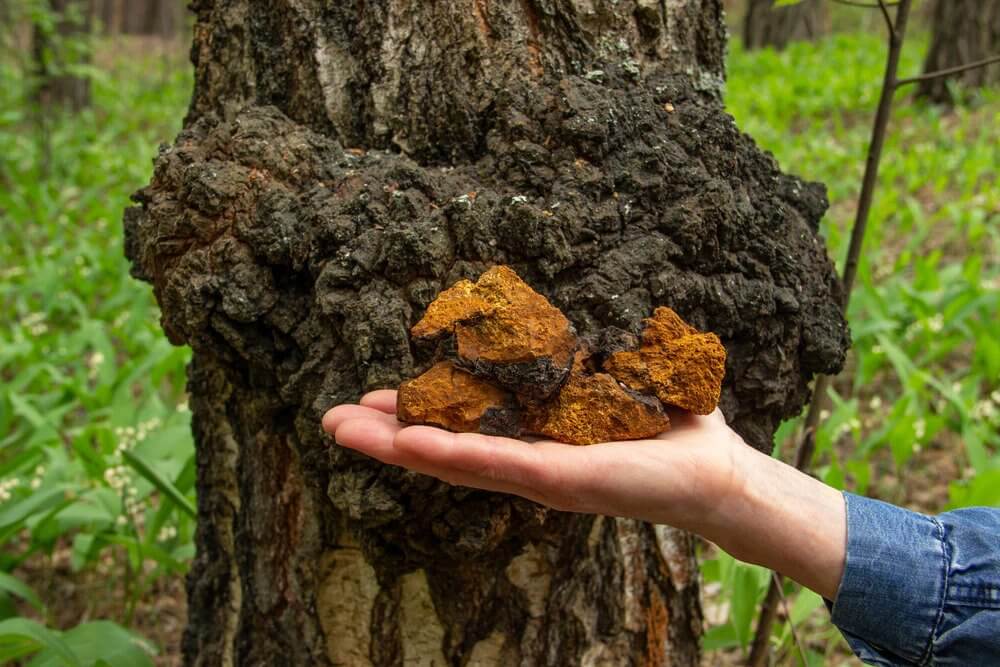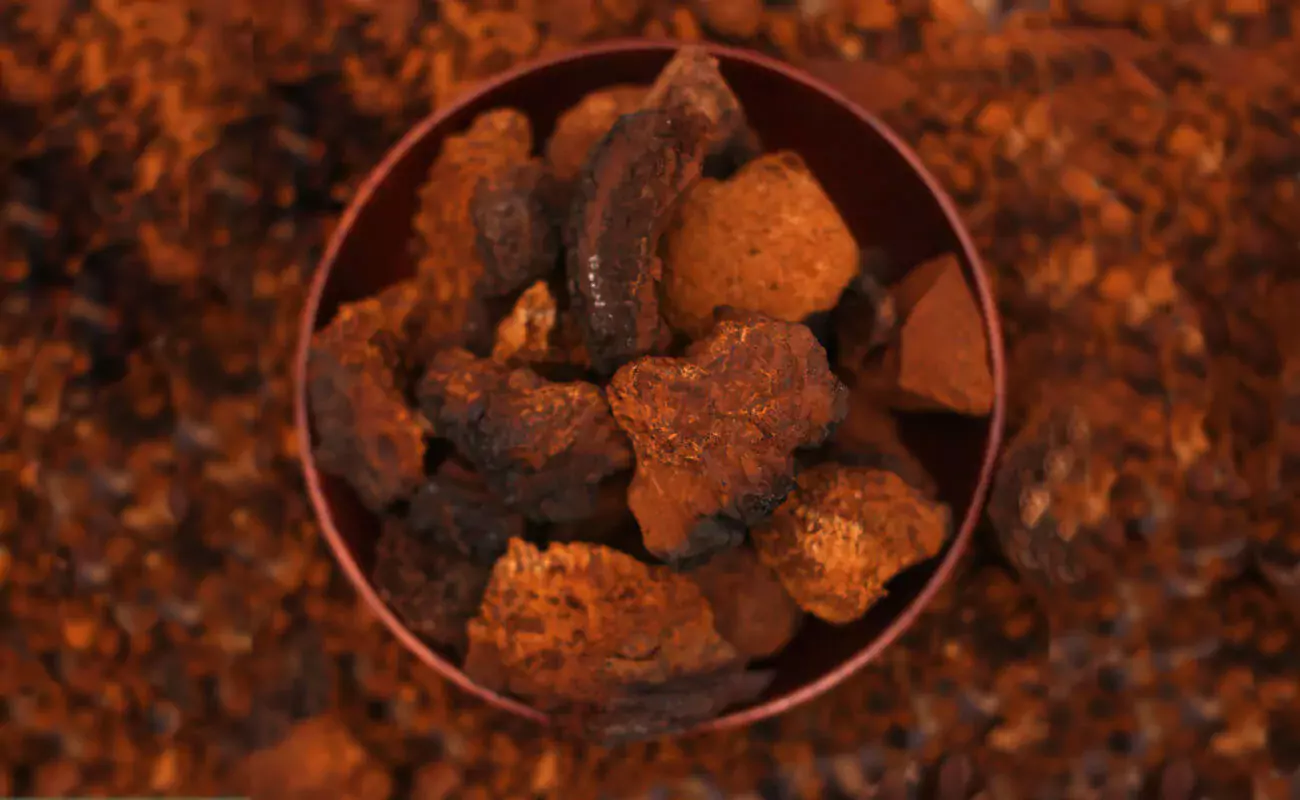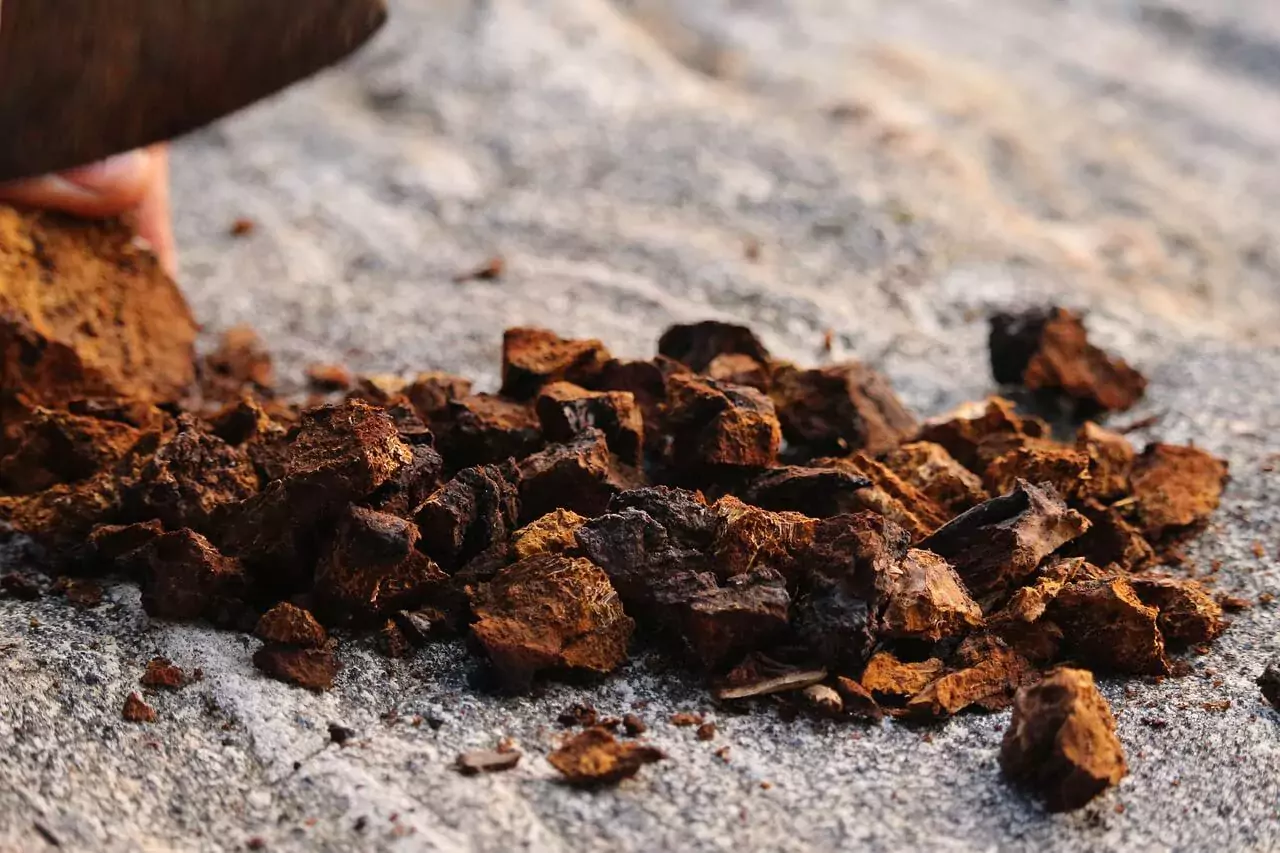Chaga Mushroom: Health Benefits and Therapeutic Effects
The Benefits of Chaga Mushroom
The Diamond of the Forest
Historically used to boost immunity and enhance digestive health, Chaga is now enjoyed as a tea, supplement, or coffee infusion for its profound health benefits.

Shop Rest & Relaxation
Explore natural ways to unwind and boost your daily wellbeing.
What is Chaga Mushroom?
Chaga (Inonotus obliquus) is a unique fungus loaded with antioxidants. Growing in harsh environments, it acts as a resilient adaptogen packed with essential minerals.
How is it Used?
- • Tea: Simmer ground pieces in water.
- • Mushroom Coffee: Blended with coffee beans.
- • Tincture: Powder blended with alcohol.
- • Supplements: Powder, capsules, or tablets.
What Does it Contain?
- • Rich reservoir of phytochemicals
- • Minerals: Zinc, Copper, Manganese
- • Beta-glucans for immunity
- • Superoxide Dismutase (SOD) antioxidant
Health Benefits
Cancer Potential
Studies indicate potential in decelerating cancer cell proliferation due to triterpenoid compounds.
Immune Support
Stimulates production of T lymphocytes and cytokines to defend against infections.
Antiviral Properties
Studied for effects on HIV and Hepatitis C, showing promise in inhibiting viral replication.
Inflammation
Reduces inflammation in the gut/colon; helps control conditions like ulcerative colitis.
Blood Sugar
Improves insulin resistance and helps reduce blood sugar levels via polysaccharides.
Blood Pressure
Rich in antioxidants (SOD) which may promote cardiovascular health and manage pressure.

Therapeutic Effects
Physical Endurance
Increases glycogen storage and reduces lactic acid, potentially enhancing stamina and recovery.
Skincare Applications
Powerhouse of melanins shielding skin from UV. Antioxidants mitigate aging and bolster skin health.

Shop Personal Care
Discover natural skincare solutions for a radiant glow.
Side Effects & Risks
- ! May interact with blood-thinning medications and drugs for diabetes/autoimmune diseases.
- ! High oxalate content may induce kidney damage in large quantities.
- ! Pregnant/breastfeeding women should avoid due to lack of safety data.
